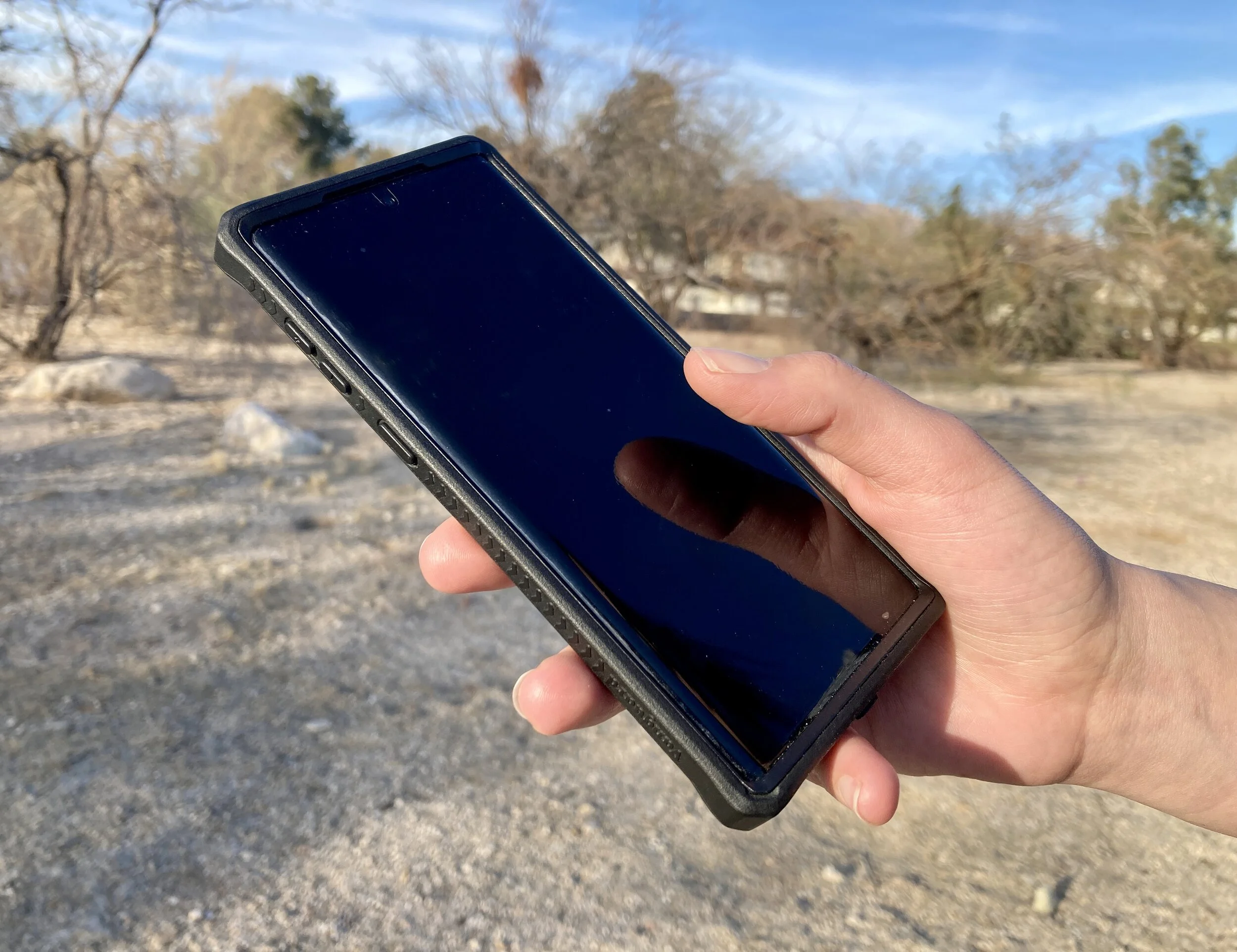Manufactured Urgency: How Smartphones and TV Destroy More of Our Time than We Spend Working
The urgent yet not-important demands in our lives threaten to crowd out the not-urgent but vitally-important priorities, such as making enough time and space to go outside and be active every single day. But perhaps even more catastrophic to our free time is the phenomenon of manufactured urgency.
A select few things in life attempt to artificially create a sense of urgency, calling and beckoning to us to spend our precious few hours answering the call and ding of the seemingly-urgent. Two of the main offenders: the 24-hour news cycle and social media.
Both of these manufacturers of extremely unimportant distractions use pings, dings, and notifications to attempt to attract our attention. While the smartphone's pop-up notification was once solely the domain of social media apps, news websites have now created apps and notification systems to do the same damn thing to us. Regardless of who's doing it, those flashing red lights and obnoxious dings sure sound bloody urgent as they buzz and bleep. They demand our attention, stealing away our time that could be better invested in something that's actually meaningful.
"The urge to check Twitter or refresh Reddit becomes a nervous twitch that shatters uninterrupted time into shards too small to support the presence necessary for an intentional life," writes Cal Newport in his book Digital Minimalism. Newport argues that our focus and presence in the moment is crushed by social media and our constant draw to it. He, along with others, argues that we need to reclaim our lives from the social media giants, recapture our time and focus, and hone in on the things that truly matter to us in life.
In the past, I've failed to accurately cast blame upon social media (and my own personal distractions) for not accomplishing the things that I truly want in life. I haven't fully given them the blame they're due for sucking up massive amounts of my personal time. Instead, I've most often been guilty of blaming my job and other obligations... anything and anybody but my own damn self.
But the pandemic has shown me—and millions of other people—how absolutely deluded we all were about this point.
"People love to bitch and moan that they don’t have enough time," reflected Mark Manson in a recent article about life lessons from 2020. "In most cases, I’ve found that it’s rarely a problem of time, but usually a problem of priorities. People spend hours scrolling through Instagram or an entire weekend binge-watching Netflix and then complain they don’t have the time to take that online course or or go to the gym.
"In many cases, removing the time constraints exposed people to this issue—that they were the problem all along."
How much time are we actually wasting?
It's easy to think that a quick check of the socials, or a TV episode here or there, isn't a significant time expenditure... but think again.
As I wrote in 2018 on Singletracks.com,
The New York Times reported (in pre-pandemic times) that the average American watches 5 hours and 4 minutes of television per day. That’s 35.47 hours of TV per week, or more than 1,844 hours per year. (Note: there’s some disagreement on these statistics, with the Washington Post reporting 20 hours per week spent watching TV. However, the Post article is a few years older and cites a different survey.)
If you’re an average American, based on these statistics, watching TV takes up nearly 81% of your 43.85 hours of free time per week, leaving just over 8 hours open for the week.
Cal Newport cites in his book that the average person spends 50 minutes per day, on average, on Facebook-owned social media sites.
What about total cell phone use? While total amounts of time vary depending on which source you check, according to some sources Americans spent an average of 3 hours and 10 minutes per day on their smartphones in 2019. In 2020, with the pandemic factored in, emarketer.com estimated that total time spent on smartphones would increase by 23 minutes per day, to a total of 3 hours and 33 minutes. During the height of the pandemic in April, Forbes reported that we spent an average of 4 hours and 20 minutes on our phones per day.
What does that add up to? At 3.5 hours per day, that's 24.5 hours per week, or 1,274 hours per year. Add that to the 1,844 hours of television time per year, and you end up with 3,118 hours. However, let's be generous and assume that roughly one-third of the time spent watching TV is also simultaneously spent scrolling on the cell phone. Even if we lop 609 hours off the TV watching number, we come to 2,509 hours per year spent on TV and cell phones.
2,509 hours per year.
Vilifying our time spent working is absolutely not the easiest solution to carve out more free time to do high-value activities, like being outside. We still gotta make those dolla dolla bills y'all. Instead, being conscious of how we allot our free time by choosing to spend it on high-quality activities is the most high-leverage decision we can make.
Compare the 2,509 hours wasted on TV and cell phones to the widely-used calculation of 2,000 hours per year for the standard American career (40 hours per week x 50 weeks). Perhaps a more accurate calculation of the time Americans spend working combines the average 47-hour workweek and 4 hours of weekly commuting (covered in more detail in my 2018 article) to a rough total of 50 hours per week X 50 weeks per year: 2,500 hours.
Even calculating based on a 50-hour workweek, the average American still wastes more time on TV and cell phones per year than they spend working.
I wish Newport would have mentioned this in his book because to me, this really drives the point home. I honestly found these numbers to be quite shocking and devastating.
If you're looking for a way out, putting your phone in airplane mode and going for a walk is a great start. But if you're looking for more in-depth, concrete strategies, Newport goes deep in his book Digital Minimalism with guidelines on how to corral your cell phone usage during your free time, and guidelines on how to limit your distractions during the workday in Deep Work.
Personally, this is still a work in progress in my own life. I enjoy some types of social media (cough Instagram cough) quite a bit and sometimes have a hard time putting my phone down. Over the past year, I have managed to dramatically reduce my TV watching time, to the point where Netflix has taken to sending me emails, trying to get me to log back on and re-watch shows I've watched in the past, because apparently they can't entice me to watch any new ones.
We have the power to change our own lives!
On the one hand, we could easily view these statistics as depressing and destructive. But I want to re-frame these numbers in such a way that we realize we have the power to change our own lives.
If we once felt like we didn't have enough time to invest in the things that are most meaningful to us, now we know that we actually have enough space to create the lives that we want to live, even without doing something as radical as leaving our day job. Even if you're working 50 hours per week, just by eliminating cell phone use and TV watching you could easily create enough time to spend hours outside, every single day.
The power to change our lives is in our hands. All we have to do is put it down.
PS: Want to keep up with Outside 365 but don't want to manufacture any more urgency in your own life? Subscribe to the email newsletter, and every new article will be sent straight to your inbox. It'll be waiting patiently for you there, ready for you to read it whenever you have the time to do so.
Even More Crucial Tactics
Check out the other installments in the Crucial Tactics series here:

